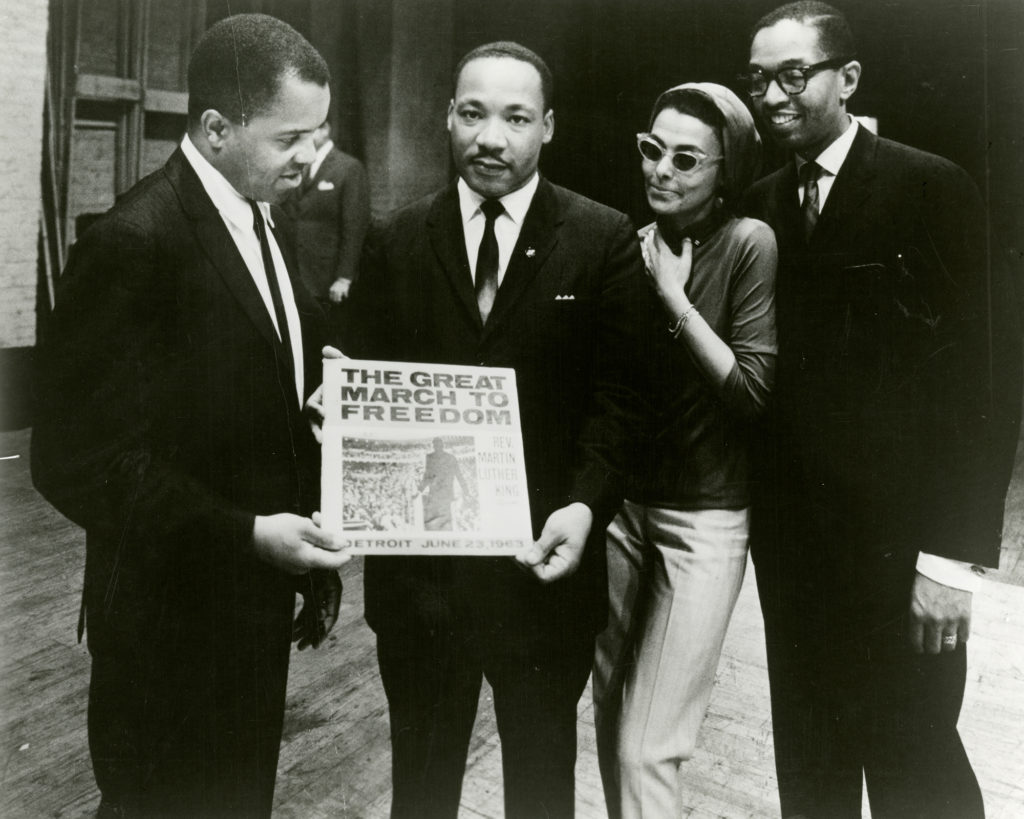Motown in Transition: From Mainstream Market to Black Expression

By the end of the 1960s, the hostile political landscape of the post Civil Rights Era began to reflect on the once squeaky clean, mainstream sound of Motown. In the wake of the assassinations of Malcolm X in 1965, Martin Luther King Jr in 1968, and Fred Hampton in 1969, the 1970s were deeply entrenched in the “Black Power” movement and reflected the black commmunity’s desire to reclaim their culture and “spread [their] raw artistic expression displaying the realities of African Americans” (Black Power). Motown artists like The Temptations, Marvin Gaye, and Sam Cooke began producing “harder-driving rhythms with less conciliatory lyrics” (Black Power Playlist: Music is the Message). This trend is exemplified in the song titles of the post-Motown era with Cooke’s “A Change is Gonna Come” and The Temptations’ “Message From a Black Man”. Social activist lyrics helped artists move away from “white corporate structures” and begin embracing black culture and its musical roots in R&B and Jazz (Neal 96).
In the 1970s, organized struggles for Black empowerment intensified throughout the United States, yielding a transition from mass market appeals to the urgency of the sociopolitical climate through Black popular music (Neal 61). Motown’s prominence as a Black record label led it to engage with Civil Rights activism, creating a label dedicated towards advocacy towards racial justice: the Black Forum (Sykes 1). Under the Black Forum, the Temptations worked alongside prominent R&B and soul musicians to produce message songs, translating the work of Civil Rights leaders into musical mediums: “On Black Forum we hear the words of civil rights leader Dr. Martin Luther King, Jr., Black Power symbol Stokely Carmichael, poets Langston Hughes and Margaret Danner,” among others (Sykes 2). In 1970, the Temptations recorded a message song titled, “Ball of Confusion,” which contained lyrics that addressed issues such as White flight, drug abuse, unemployment, education reform, and suicide rate in the Black community (Sykes 11). Message songs were especially prevalent in the 1970s, when Motown exhibited a transition from producing the love songs of its peak 1960s era to including work that engaged the socio-political landscape of the United States (Sykes 11).
It is in its engagement with the Civil Rights Movement that the gap between traditional R&B and the Temptations’ music began to close. Motown’s transition from mass market profitability to promoting authentically Black music is thus reflected in the Temptations’ music in the 1970s. Rather than obsessing over appealing to mainstream audiences, the Temptations’ lyrical and visual performances began to align more with Black expression unique to R&B, especially demonstrated by their frequent use of improvisation techniques.